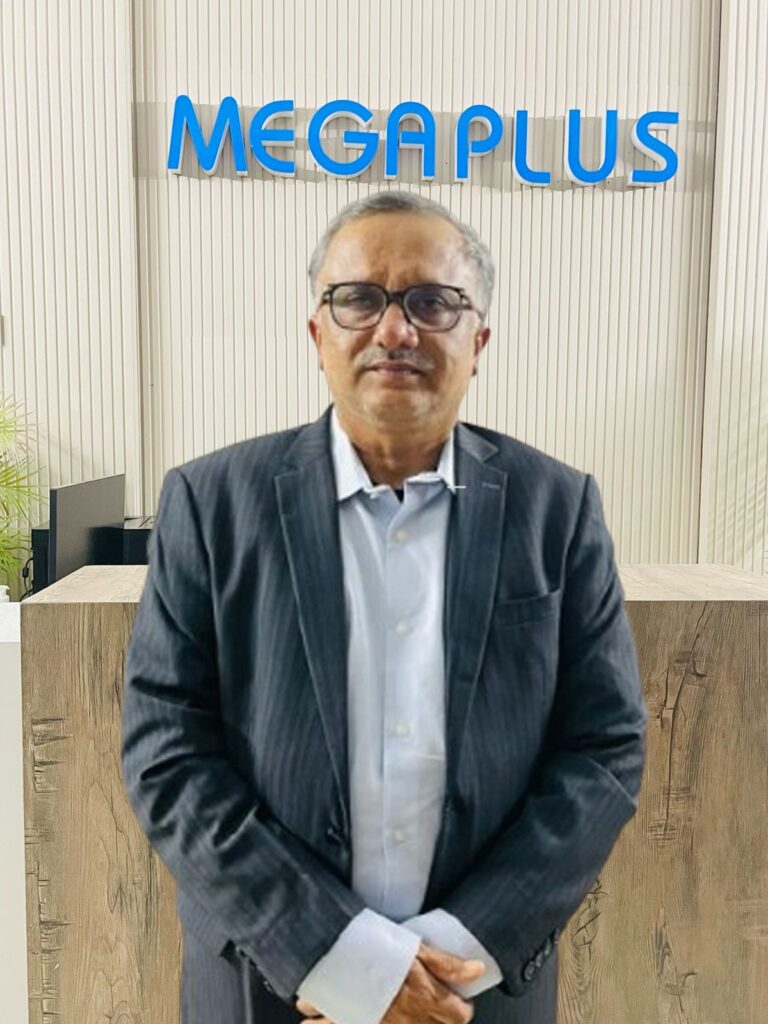Big cities around the world have now adopted safety protocols as per their localized needs to ensure safe and peaceful living of their citizens: Mahmood Ali

The public perception of safety and security varies greatly in Pakistan. Security is often addressed aggressively in response to the country’s law and order situation in last three decade. Security concerns have been given attention due to its importance for peaceful living. This is evident from the widespread presence of monitoring cameras, security guard, access and monitoring systems in houses, buildings, malls and industries, says Syed Mahmood Ali, Business Unit Head, Mega Plus PCC (power controls and communication Division.)
In an interview with ER, he went on to build his argument: Safe cities programs have been launched in Pakistan in an effort to get centralized and efficient response to crimes using advance security systems. Nowadays, you can find people monitor their premises using latest IoT-based solutions on their cell phones.
On other side though fire safety—tells a different story. Following the 2005 earthquake in Pakistan, there was a realization, particularly after fire eruption to enhance building codes adding fire safety in all buildings. Mega Cities like Karachi, Islamabad and Lahore saw revised building codes and safety procedures were adopted aggressively. However, this focus especially on regulating fire safety systems faded away. Rapid fire incidents in recent past are evidence of this negligence.
The government role is very important to ensure these building codes and regulations are implemented properly.
Are public sector departments responsible for fire safety playing their part, and are they attaching due importance to the installation of fire safety systems?
The role of the government is pivotal. First to formulate safety regulations and codes and then updating & upgrading these codes according to international standards and norms periodically. Implementation of these regulations also falls under the government’s domain. The agencies responsible for monitoring that these regulations and safety standards must ensure that not only fire detection and suppression systems are installed but their periodic check and maintenance is done timely at premises, for emergency time operations.
The government can also play a significant role by offering incentives in form of reducing import taxes on life safety systems and components that are not produced locally, attracting investors to bring technology and production of these items locally. This way these fire safety systems become more affordable even for smaller projects and developers as well. The Govt, NGOS and industry leaders need to collaborate to launch and support awareness campaigns focusing on the importance of fire and safety measures to protect people’s lives.
International experiences shows that fire and safety systems irrespective of installation size must adopt it as a basic building need now. Also fire detection and alarms systems of premises shall be connected to local fire departments for timely response & fire fighting. Such practices should be strengthened in all Pakistan.
How have AI and IoT impacted safety systems, and what changes have you witnessed?
Technology has advanced significantly in the new millennium. Fire safety technologies, including connected sensors sensitivity & self-learning algorithm has improved considerably. Security systems, too, have evolved with the introduction of modern and sensitive AI based cameras and equipment. IoT has transformed seamless integration of different systems like security systems, barriers, X-ray machines, sensors and cameras with building management systems and into fire safety and emergency evacuation systems as well. In past, integration was challenging due to mismatching/proprietary systems protocols. Now with IoT based integration, this is getting much easier, faster and efficient. AI induction and usage is also adding on benefits every day.
Also, the world has moved to predictive maintenance in all segments of industry and buildings systems. AI tools are now being used to predict failure and threats early. This also allowing technology to identify potential threats in advance and improve fire and safety systems operations and maintenance.
Areas of Operation and Principles of Mega Plus
Megaplus Division of Power Controls and Communication (PCC) has multiple international brands with us. We are Honeywell’s Distributor & system integrator of Esser by Honeywell fire alarm & Honeywell security systems. We maintain a healthy inventory and also do commissioning and maintenance of these systems via our Honeywell certified and trained team of Engineers.
we are also Distributor and stockiest of HIK Vision in Pakistan. We provide complete security solutions, including CCTV, access control, video walls and display system and physical security products. Our team also specializes in security software integration, with satisfied clients.
Also in power products sector, Megaplus deal in electrical safety products as well. We are Distributor and stockiest of Schneider Electric for low voltage switchgear components.
Megaplus also provide e comprehensive Earthing and lightning protection solution representing Dehn, a leading German brand. We also represent some world-renowned brands like Legrand and Corning as well.
With Our installed base of clientele, Megaplus is protection hotels, hospitals, malls, residential estates, all industry and IT segments as well making us one of the leading fire safety and security company in Pakistan, with offices in all provinces and Capital city.
